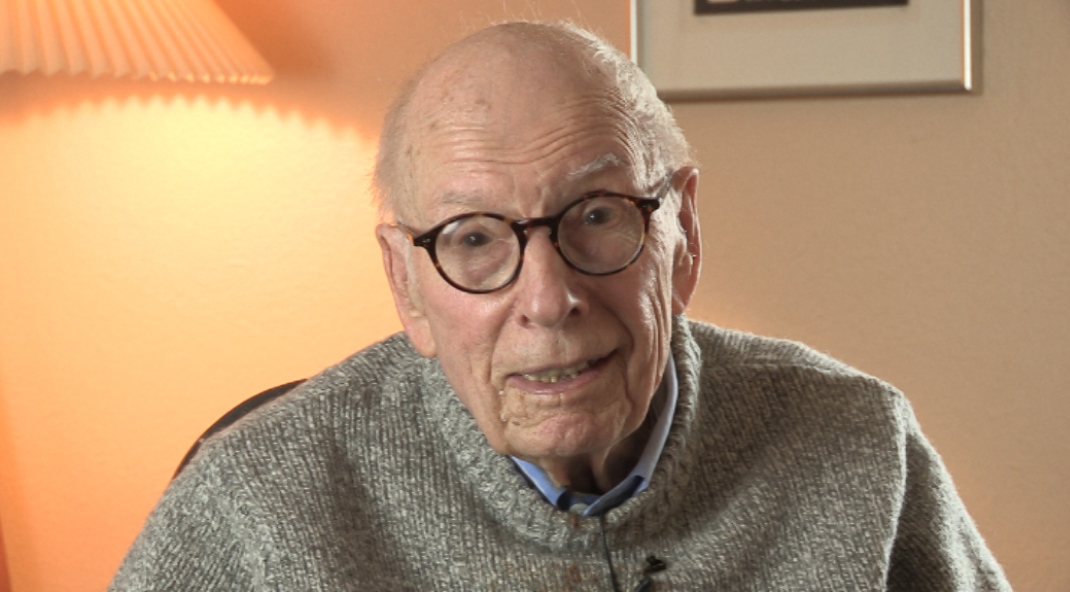NEXT STORY

Natural selection in small organisms
RELATED STORIES

NEXT STORY

Natural selection in small organisms
RELATED STORIES


|
Views | Duration | |
|---|---|---|---|
| 51. Notable scientist friends | 71 | 03:42 | |
| 52. A memorable meal | 58 | 03:08 | |
| 53. The brilliant JBS Haldane | 271 | 01:15 | |
| 54. Discovery of cyclic AMP creates a stir | 47 | 04:10 | |
| 55. Progress in experimental biology | 24 | 03:36 | |
| 56. Is my kind of biology ‘dead wood’? | 49 | 02:24 | |
| 57. If not slime molds, then what? | 35 | 01:15 | |
| 58. Natural selection in small organisms | 28 | 02:00 | |
| 59. What’s special about slime molds? | 44 | 01:48 |

The questions that I ask are very similar to what the questions of the people who are doing developmental molecular biology. And the two go together. So I'm just saying, don't kick me out, yet. I've got a few years to go.
[Q] If you had, just supposing you know, that you could now have another 50 years as a working scientist, would you carry on working in slime molds? Or is there some other…
I don't think so. I think that what possesses me right now, and I think this would be the direction I'd go in. What possesses me right now are problems in evolution because it's such an all-encompassing idea and subject that I find myself infinitely attracted to that.
John Tyler Bonner (born in 1920) is an emeritus professor in the Department of Ecology and Evolutionary Biology at Princeton University. He is a pioneer in the use of cellular slime molds to understand evolution and development and is one of the world's leading experts on cellular slime molds. He says that his prime interests are in evolution and development and that he uses the cellular slime molds as a tool to seek an understanding of those twin disciplines. He has written several books on developmental biology and evolution, many scientific papers, and has produced a number of works in biology. He has led the way in making Dictyostelium discoideum a model organism central to examining some of the major questions in experimental biology.
Title: If not slime molds, then what?
Listeners: Christopher Sykes
Christopher Sykes is an independent documentary producer who has made a number of films about science and scientists for BBC TV, Channel Four, and PBS.
Tags: developmental molecular biology, slime molds, evolution
Duration: 1 minute, 15 seconds
Date story recorded: February 2016
Date story went live: 14 September 2016